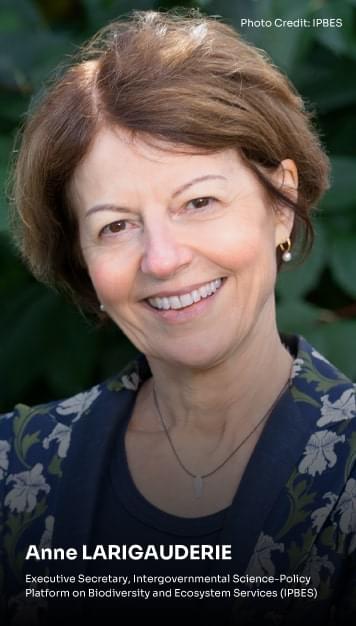Summary
The Intergovernmental Science-Policy Platform on Biodiversity and Ecosystem Services (IPBES), established in 2012, has changed the way the world sees biodiversity assessment. This session focused on introducing biodiversity assessment on a global, national and local level.
First, the moderator spoke about the importance and scope of biodiversity assessments at global, national and local levels. He also mentioned local biodiversity assessments in Japan, emphasising the role of local policies. He concluded with an overview of IPBES as a global body similar to the Intergovernmental Panel on Climate Change (IPCC), focusing on biodiversity assessments to inform policy development at regional and global levels. In the video message, the speaker focused on addressing multiple global environmental crises, emphasising the interconnectedness of biodiversity and climate change. She highlighted the role of IPBES in providing policy-relevant assessments on biodiversity and nature's contributions to people. These assessments utilise diverse knowledge systems, including indigenous and local knowledge, to inform decision-makers. She introduced key ongoing IPBES assessments, including the nexus assessment, which explores synergies and trade-offs among food, water, health, biodiversity and climate change; the transformative change assessment, examining indirect drivers of biodiversity change; and the business and biodiversity assessment which aims to evaluate the impacts of the business sector on nature. She underscored the importance of collaborative efforts by scientists and technical support units (TSUs), such as those hosted by IGES in Japan, in advancing understanding and action on biodiversity.
The second speaker provided an overview of the role of IPBES assessments in informing policymaking from international to local levels. IPBES conducts assessments that highlight knowledge gaps, guiding future research and conservation efforts. A key function of IPBES is capacity building, helping experts and governments enhance their assessment and policy-making skills. Despite successes (e.g. approval of Kunming-Montreal Global Biodiversity Framework (GBF)), there are some challenges, including language barriers and limited country-specific data. He highlighted some of Japan’s efforts, particularly the Japan Biodiversity Outlook (JBO), in conducting national biodiversity assessments. He mentioned that these assessments are updated to reflect new research findings and inform national and local biodiversity strategies and action plans, demonstrating the interconnectedness of global and national biodiversity conservation efforts.
The last speaker introduced the new hosting, by the Government of Japan at IGES, of the IPBES TSU on scenarios and models. He explained the roles and responsibilities of the TSU and highlighted the importance of IGES, which is strategically located and has been involved in various IPBES assessments. In the panel discussion, participants further discussed the usefulness of methodological assessment in Japan and the role of the scenarios and models TSU. The IPBES methodological assessments, which provides common terminologies, fostering effective communication between scientists and policymakers across various fields was introduced. A panellist then mentioned the Nature Futures Framework (NFF), setting scenarios and models for biodiversity. The TSU aims to coordinate workshops and discussions to tackle challenges and facilitate the effective application of the NFF on the ground. The audience asked about the relevance of past international climate change conferences, and the moderator mentioned IPBES’s collaboration workshop with the IPCC in 2021.
Key Messages- IPBES provides policy-relevant biodiversity assessments and addresses knowledge gaps to inform biodiversity conservation efforts at global, national and local levels.
- One of the ongoing IPBES assessments, the “nexus assessment”, explores interconnections among food, water, health, climate change and biodiversity, and ways in which biodiversity conservation can assist in addressing other sustainability challenges. The nexus assessment report is due to be released later in 2024 along with the “transformative change” assessment report, followed next year by the assessment report on business and biodiversity.
- The Japan Biodiversity Outlook (JBO), demonstrates the importance of localising global findings and enhancing policymaking through capacity building and collaborative research efforts.













-min.JPG)
-min.JPG)
-min.JPG)
-min.JPG)
-min.JPG)
-min.JPG)
-min.JPG)
-min.JPG)